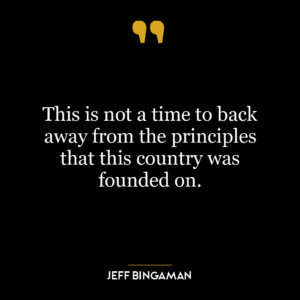This quote by Mark Twain highlights the paradox of religion’s role in American society. The U.S. Constitution, the foundational document of the nation, does not mention God, reflecting the founders’ commitment to the separation of church and state. Yet, the phrase “In God We Trust” is prominently displayed on the country’s currency, suggesting a pervasive religious influence.
The quote can be seen as a critique of the inconsistency between the principles of a secular government and the practical realities of a society where religion plays a significant role. Twain might be suggesting that while the country was designed to be religiously neutral, the use of religious language on currency reveals an underlying religious bias or influence.
Applying this quote to today’s world, it could be argued that the tension between secular and religious influences continues to be a significant issue. Debates about the role of religion in public life, from politics to education, are ongoing. The quote might also be used to highlight the fact that while society may espouse certain ideals in theory (like the separation of church and state), in practice, things might be different.
In terms of personal development, this quote could be seen as a reminder to align one’s actions with their values. Just as the contradiction between the secular Constitution and religious currency suggests a disconnect, individuals might also find that their actions do not always reflect their beliefs. This quote could inspire a self-reflection on whether one’s actions are consistent with their values and beliefs, and if not, it might serve as a call to strive for greater alignment.





